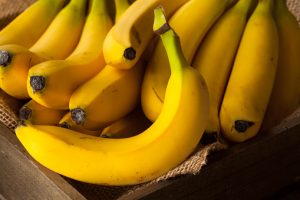
Potassium-rich foods help reduce the risk of heart disease: Study
Researchers from the University of Alabama at Birmingham looked at mice potassium levels and uncovered that reducing potassium levels through diet contributes to the formation of vascular calcification and aortic stiffness—hardening of the arteries.
When arteries become hard, blood pressure increases, as does damage to artery walls, which are all contributing factors to heart disease.
The researchers found a hardening of the arteries to be higher among mice that consumed a low-potassium diet compared to mice that consumed more potassium. Additionally, the researchers found that too little potassium seems to promote expression of certain gene markers, which in turn promotes vascular calcification.
This led the researchers to conclude that reduced potassium intake could promote aortic stiffness and therefore, increasing potassium could promote healthy arteries.
Dr. Paul Sanders, co-author of the study, explained “The findings have important translational potential since they demonstrate the benefit of adequate potassium supplementation on prevention of vascular calcification in atherosclerosis-prone mice, and the adverse effect of low potassium intake.”
Potassium is an essential mineral as it plays a role in many bodily functions such as maintaining healthy blood pressure, muscle growth, and brain and nervous system function.
You may think that because potassium is so essential for health that you should stock up on it—but researchers warn against this. Dr. Robert S. Greenfield explained, “When it comes to potassium, I kind of worry a little bit about people trying to take too much. You know, there are a lot of people walking around, especially middle-age people, that may have minor kidney problems that don’t even register on a lab test, and they may not handle potassium sufficiently, and you certainly don’t want to take too much.”
As with anything in life, moderation is key, and so even though potassium is necessary and offers benefits, taking in more than what is required won’t make you any healthier. In fact, it may make you quite sick.
The recommended daily intake of potassium is 4,700 milligrams, and many Americans only consume around half of that. One medium banana only contains 422.4 mg of potassium, so you have room in your diet to add in more. You may think that you can just supplement your daily intake of potassium, but as with any nutrient, your body absorbs it in greater quantities when ingested through food.
Related: How does potassium lower blood pressure?